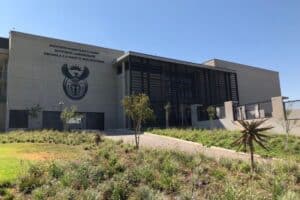Gauteng government initiated the first payment of its e-toll debt which will escalate to R20 billion over the next five years.

Gauteng Member of the Executive Council (MEC) for Finance and Economic Development Lebogang Maile says the province will not go bankrupt.
He was speaking at a briefing on Monday where he outlined the debt repayment structure of the failed e-toll revenue collection project.
The first payment of R3.8 billion has been made and is the first of a five-year plan to cover the historical debt of R12.9 billion.
Total cost of R43 billion
The initial capital investment for the construction of the project was sourced by Sanral via the open market in the mid-2000s.
Maile stated on Monday that “conspiracy theories” should not be entertained about who the funders were, but that the repayment of their investment was non-negotiable.
ALSO READ: ‘R6 billion in the red’; Gauteng could face bankruptcy by 2025 amid e-tolls debt
However, an entity owned by Austrian-based company Kapsch TrafficCom was granted the contract to manage the E-toll accounts and collections.
The MEC’s team revealed that the total debt owed on the freeway upgrade project was R43 billion.
National government will account for 70% of the debt, with the provincial government covering the remaining 30%.
The R12.9 billion excludes maintenance and interest fees, with the total repayment ballooning to almost R20 billion by the time the debt is cleared.
ALSO READ: E-tolls: Gauteng government to make first debt payment in September – Maile
No money will be borrowed to make the payments, with the amount already having been budgeted for via the provincial revenue fund.
However, no provision has been made to reimburse those who did pay their e-toll accounts.
“When people were paying for e-tolls, remember it was legal, it was not illegal,” said Maile.
“They were paying because they were utilising the service, so they will not be paid back because that money was not collected illegally by the government,” the MEC clarified.
Repurposing of gantries
On the blue-lit gantries dotting the province’s freeways, he said they would be the responsibility of the provincial and national departments of transport.
“We only deal with the money so we don’t want to speak on their behalf. We have the most difficult task of paying,” said Maile.
ALSO READ: E-tolls scrapped, but gantries will remain operational – Chikunga
However, he stressed that what had been built was only phase one, and questioned where additional funds could be found.
“Society must tell us, all those campaigning against this must tell us how do we fund the second and the third phases because certainly it wouldn’t be sustainable,” said Maile.
“We can’t compromise the user-pay principle. You can’t expect those who do not have cars to pay. You are paying for what you are using,” he continued.
Lamenting the lack of buy-in from an already heavily burdened public, he added: “We shouldn’t allow what I’ll call civil disobedience because it can lead to things falling apart.”
No ripple effect on other departments
The installments will be paid to the national treasury who will relay the amounts to the entities who made the initial investments, although Maile did not elaborate on their identities.
The province has been fighting budget cuts on multiple fronts but the MEC said they were doing what they can to adequately manage their affairs.
The province will be exploring other revenue generation streams, with announcements on those when the plans are ready.
Maile was adamant that despite budget constraints, his department had matters under control, stating “The Gauteng province will never be bankrupt.”






